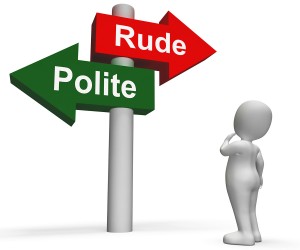Are Hiring Managers Becoming More Rude and Destructive?

Kreamer, the former executive vice president, worldwide creative director, for Nickelodeon and Nick at Nite, cites the case of a man who went through countless interviews with a sporting goods company, only to be passed over for an internal candidate.
As Kreamer recounts, “And with months of his ‘life down the drain,’ but knowing that he worked in a small community, Martin [not his real name] felt obliged not come off as a sore loser. ‘But the fact of the matter is, I got taken.’ His goal today? ‘To ruin this company.’”
A major part of the problem, according to Kreamer, is hiring managers suffer a crippling fear of commitment. “Data compiled for the New York Times by Glassdoor found that an average interview process in 2013 lasted 23 days versus an average of 12 days in 2009. And time-consuming assignments and auditions for candidates … are the new normal,” she writes.
She adds, “I can’t pinpoint exactly when the hiring process went off the rails, but I believe it began in the late 90s, when cost cutting became a mania and headcount was slashed to the bone, requiring every employee to do the work of many. With so little margin for error, every hire became a fraught decision, and the fear of making a mistake loomed larger and larger.”
Another case Kreamer came across is a woman who interviewed with the CEO of a company. He gave her his personal direct line and said to call him by the end of the week. She did, and called a couple more times to follow up. When she finally got through, she was rebuked by the CEO, who said her repeated calling [once a week for six weeks] had dimmed her chances of being hired. A common acquaintance told her it wasn’t personal.
But Kreamer refutes that point, which seems natural considering she has published a booked called “It’s Always Personal: Navigating Emotion in the New Workplace.” She says, “People hiring today have precious little time to read, process information, and respond to even urgent issues like staffing. But this comes at great peril to their organizations and to the rude employer. Instead of fostering good will among the prospective hires they interview, enemies like I-live-to-see-this-company-destroyed Martin are made.”
Kreamer says, “[O]rganizations … are artificially creating bureaucratic inefficiencies that are inexcusably cumbersome and that result in the creation of legions of antagonists. It’s a waste of human capital, it’s a huge waste of everyone’s productive time, and it damages the reputation of an organization and the individual doing the hiring.”
So what’s the solution? Kreamer suggests a return to basic civility. “Employers need to streamline the hiring process, calling upon both common sense and basic good manners,” she says, taking steps such as committing to a timeline, being in touch when deadlines are missed, limiting extraordinary hoops for prospects to jump through, and making sure everyone in the process gets a definitive answer within set timeframes.
Technology can be your friend in this instance, though. As Kreamer says, “Just as e-mail [sic] has compounded our daily load, so too does it liberate us from making those hard calls person to person. Use the tool to your advantage.”

